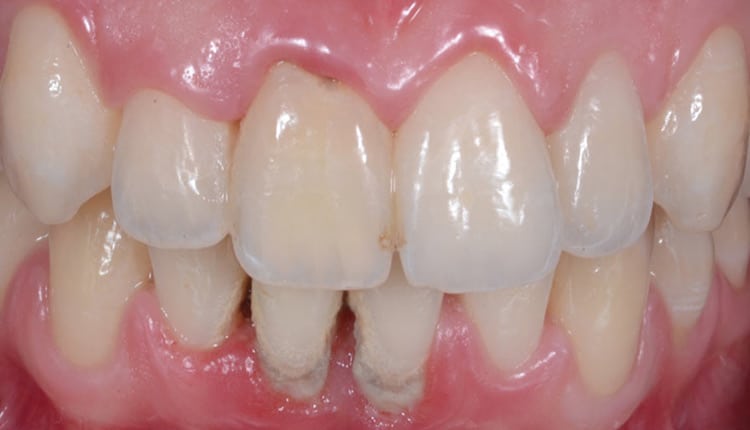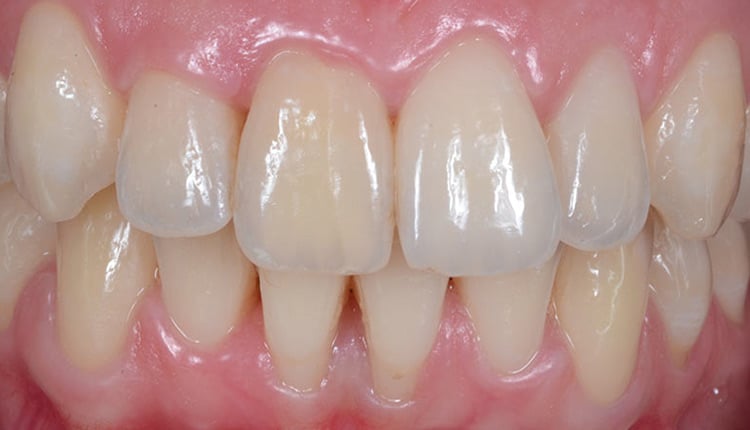Beyond the aesthetic discomfort of loosening teeth, established periodontitis gradually destroys the alveolar bone and attacks all the tissues supporting the tooth. If the progression of the disease is not halted, there is a significant risk that you will eventually lose your teeth. What’s more, this pathology also presents risks for your general health:
- Development of coronary artery disease
- Worsening of cardiac pathologies (infective endocarditis)
- Premature delivery
Hence the importance of detecting and treating it as early as possible. And while receding gums are an unmistakable sign of periodontitis, many people are unaware that the disease can develop from untreated gingivitis. Yet it’s easy to underestimate the symptoms of the disease, which can remain discreet for years before worsening. Any bleeding or swelling of the gums, however slight, must be taken seriously, even if the sensation of discomfort is limited. Finally, there are many causes of periodontitis, including genetic ones. It is possible to be affected, even with very good dental hygiene. In fact, the absence of cavities increases the risk of developing periodontal disease. This is because the bacteria responsible for cavities can be antagonistic to the bacteria responsible for loss of tooth attachment. A patient with no cavities is more likely to develop periodontal disease. In all cases, consulting a dentist specializing in periodontal disease will ensure that you receive appropriate treatment and avoid complications.



